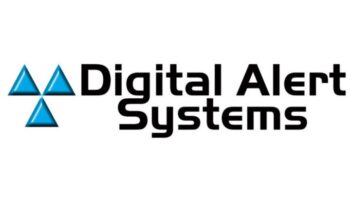More organizations are weighing in on the pros and cons of setting up an incubator program that would encourage ownership by minority groups.
The comments are coming in response to the commission’s Notice of Proposed Rulemaking as part of its 2014 Quadrennial Regulatory Review; in that document, the FCC reviewed its own broadcast ownership rules. One of those proposed items was to create an incubator program that would help facilitate station ownership for underrepresented station owners based on differences like gender, race, religion or socioeconomic status.
Under the proposal, companies would assist new owners with management or technical assistance, financial assistance or business planning help in exchange for a specific benefit, such as waiver of a broadcast ownership rule in a certain market.
While it supports the ability for new entrants to join the ranks of broadcasters — especially those who are underrepresented — the advocacy organization REC Networks said does not believe that a mentorship program like this broadcast incubator proposal would grow diversity.
[Read: Incubator Program Has Its Supporters, Detractors]
“It does just the opposite, as it may result in fewer voices in the market at the ownership level, and will further make access to the broadcast spectrum, both television and radio, well out of reach of the underrepresented communities,” the REC said in comments filed with the FCC.
REC expressed concerns that there is no adequate assurance that an incubator program would actually result in true broadcast diversity. “Instead, we will have big companies getting bigger through LMAs and Joint Sales Agreements and being able to take advantage of ownership rule waivers to justify their market domination while we have a dial full of national voices and their shill (questionably disinterested) incubated owners,” REC said.
While REC did address some of the commission’s inquiries, the group said it does not support the incubator as a whole. Instead, radio should be returned to communities through the divestiture of the large broadcasters and through right-sizing, REC said.
Other groups had opposite sentiments about the program.
According to the Advisory Committee on Diversity and Digital Empowerment, a broadcast incubator program could help eliminate common market entry barriers to women and minority ownership by providing increased opportunities for access to capital.
“Few issues of communications policy are more urgent than the need to incubate a new generation of diverse broadcast owners to serve our much larger and more diverse population,” the group said in their comment filing.
Adoption of such a proposal would incentivize companies to provide entrepreneurs with opportunities to access capital, obtain assistance with engineering and technical issues, and leverage a wealth of experience through mentorship, the group said.
The committee suggested two potential programs. One could be a joint venture between an incubating company and an incubated company, under which they would jointly own and operate a full-service radio or TV station for a certain period. Once the incubated company acquires full equity ownership of the station, the incubating company could receive a certificate entitling it to deferral of capital gains taxes.
Another option could be a gift of a station to an incubated company, after which the donating/incubating company would be eligible for a tax deduction or tax credit in an amount equal to the market value of the donated station.
These concepts would not be difficult or resource-intensive to implement, the committee said, and it would lend itself to monitoring and to evaluation via classical cost-benefit analysis.
The FCC has set a deadline of April 9 for reply comments on the issue. Comments can be submitted via the FCC’s ECFS database using Media Bureau Docket 17-289.







